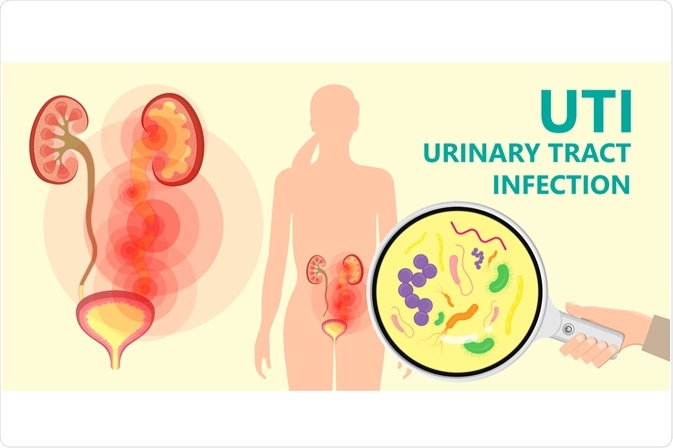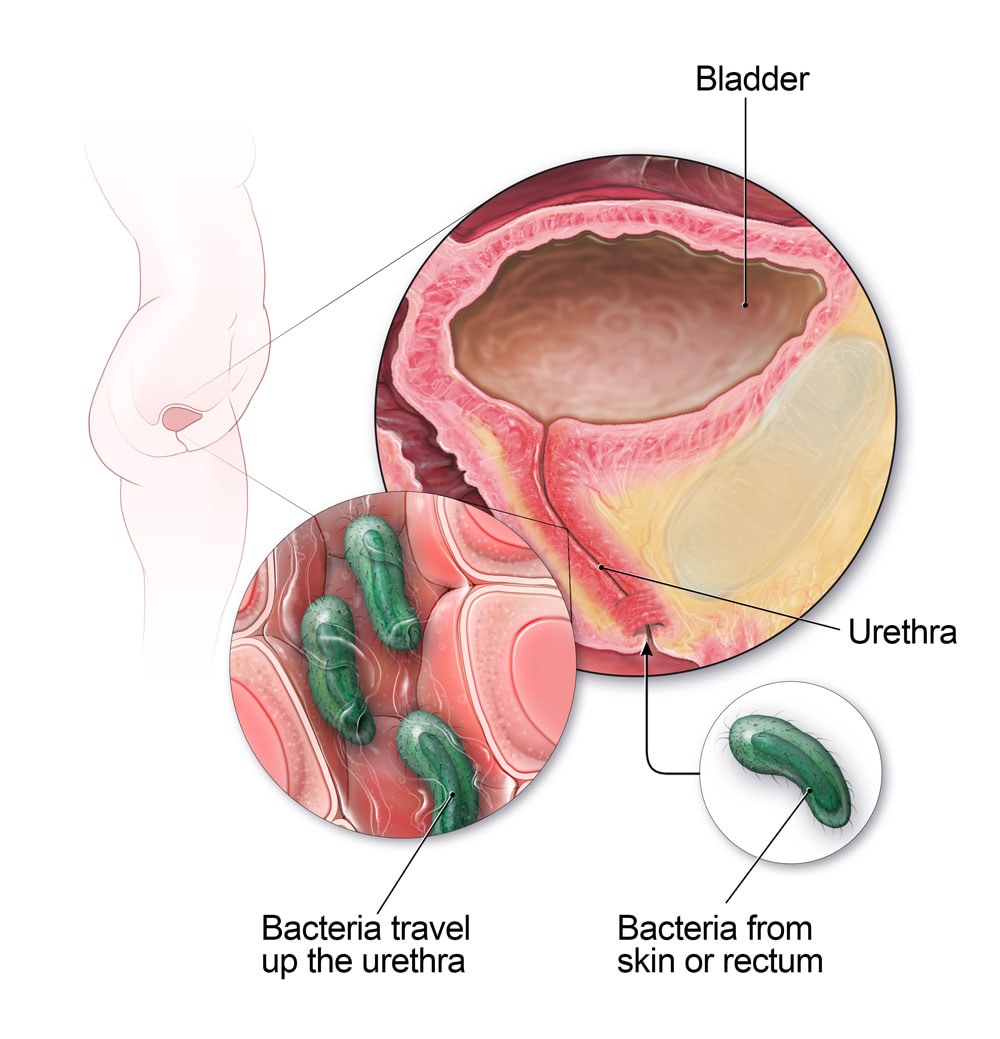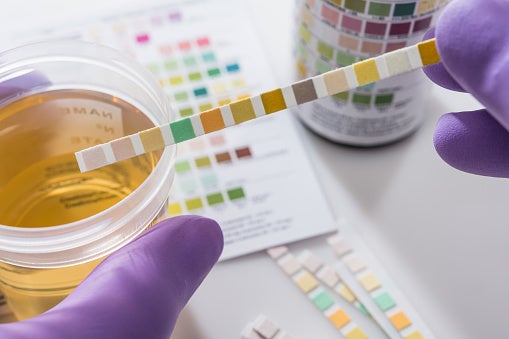Urinary Tract Infection

Do you have pain or burning when you urinate? You might have a urinary tract infection (UTI).
Antibiotics treat UTIs. Your healthcare professional can determine if you have a UTI and what antibiotic you need.
What is a urinary tract infection (UTI)?
UTIs are common infections that happen when bacteria, often from the skin or rectum, enter the urethra, and infect the urinary tract. The infections can affect several parts of the urinary tract, but the most common type is a bladder infection (cystitis).
Kidney infection (pyelonephritis) is another type of UTI. They’re less common, but more serious than bladder infections.
Risk Factors
Some people are at higher risk of getting a UTI. UTIs are more common in females because their urethras are shorter and closer to the rectum. This makes it easier for bacteria to enter the urinary tract.
Other factors that can increase the risk of UTIs:
- A previous UTI
- Sexual activity
- Changes in the bacteria that live inside the vagina, or vaginal flora. For example, menopause or the use of spermicides can cause these bacterial changes.
- Pregnancy
- Age (older adults and young children are more likely to get UTIs)
- Structural problems in the urinary tract, such as enlarged prostate
- Poor hygiene, for example, in children who are potty-training
Symptoms
:max_bytes(150000):strip_icc()/urinary-tract-infections-overview-3520507-sketch-FINAL-fab0ff5c6aab400ba4200b3417149979-8c169633a8714e798ec22891baf10189.png)
Symptoms of a bladder infection can include:
- Pain or burning while urinating
- Frequent urination
- Feeling the need to urinate despite having an empty bladder
- Bloody urine
- Pressure or cramping in the groin or lower abdomen
Symptoms of a kidney infection can include:
- Fever
- Chills
- Lower back pain or pain in the side of your back
- Nausea or vomiting
Younger children may not be able to tell you about UTI symptoms they are having. While fever is the most common sign of UTI in infants and toddlers, most children with fever do not have a UTI. If you have concerns that your child may have a UTI, talk to a healthcare professional.
Urinary Tract Infection

A female urinary tract, including the bladder and urethra. This image shows how bacteria from the skin or rectum can travel up the urethra and cause a bladder infection.
Talk to a healthcare professional right away if your child is younger than 3 months old and has a fever of 100.4 °F (38 °C) or higher.
When to Seek Medical Care

Talk to your healthcare professional if you have symptoms of a UTI or for any symptom that is severe or concerning.
Taking antibiotics, prescribed by a healthcare professional, at home can treat most UTIs. However, some cases may require treatment in a hospital.
Treatment

Your healthcare professional will determine if you have a UTI by:
- Asking about symptoms
- Doing a physical exam
- Ordering urine tests, if needed
Bacteria cause UTIs and antibiotics treat them. However, any time you take antibiotics, they can cause side effects. Side effects can include rash, dizziness, nausea, diarrhea, and yeast infections. More serious side effects can include antibiotic-resistant infections or C. diff infection, which causes diarrhea that can lead to severe colon damage and death. Call your healthcare professional if you develop any side effects while taking your antibiotic.
Sometimes other illnesses, such as sexually transmitted diseases, have symptoms similar to UTIs. Your healthcare professional can determine if a UTI or different illness is causing your symptoms and determine the best treatment.
How to Feel Better
/urinary-tract-infections-treatments-89319-627dcf085a42415bb9adf1e4d6ebb239.png)
If your healthcare professional prescribes you antibiotics:
- Take antibiotics exactly as your healthcare professional tells you.
- Do not share your antibiotics with others.
- Do not save antibiotics for later. Talk to your healthcare professional about safely discarding leftover antibiotics.
Drink plenty of water or other fluids. Your healthcare professional might also recommend medicine to help lessen the pain or discomfort. Talk with your healthcare professional if you have any questions about your antibiotics.
Prevention
:max_bytes(150000):strip_icc()/urinary-tract-infections-prevention-3520513-Final-97d8fcb9b123490c852ad3480b982792.png)
You can help prevent UTIs by doing the following:
- Urinate after sexual activity.
- Stay well hydrated.
- Take showers instead of baths.
- Minimize douching, sprays, or powders in the genital area.
- Teach girls when potty training to wipe front to back.
Disclosure: Most of this information was obtained from the CDC.gov website and brought to you by
Dr. Yvette Fletcher-Prince, MD, DNP, APRN
